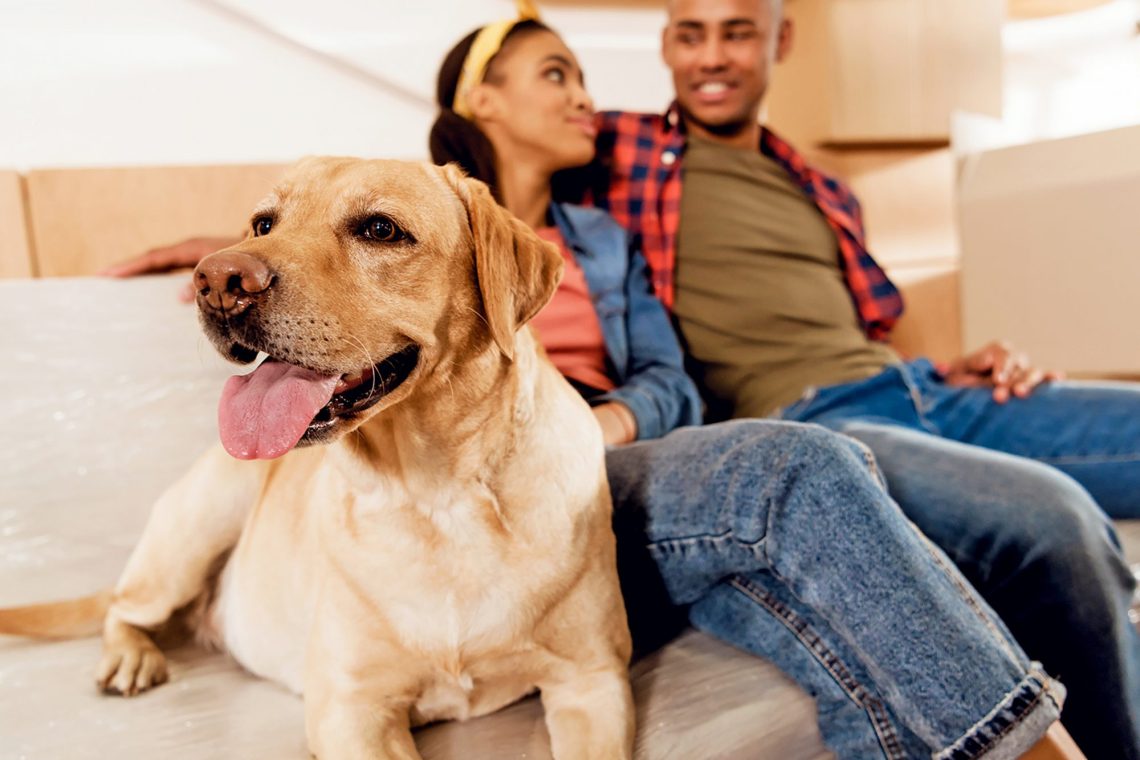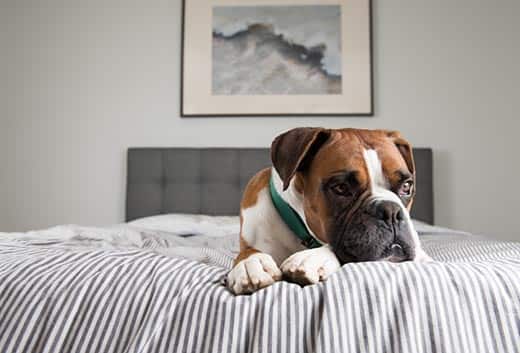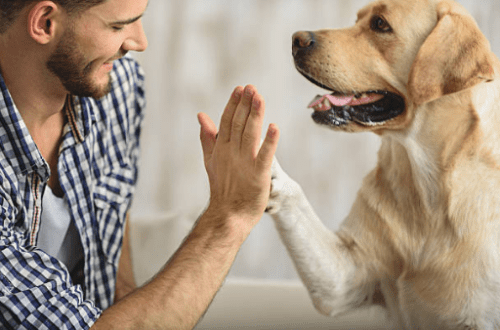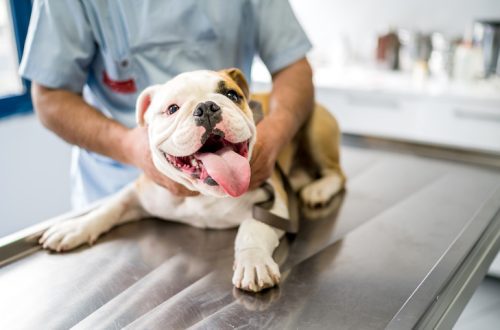
How to help your dog adjust to a new home
The appearance of a dog in the house is one of the most exciting events in the life of its owner, because there are so many wonderful moments ahead of him. A pet in such a situation may experience some anxiety. It will overcome him until he adapts to the new environment. Unfortunately, in some cases, this stress leads to uncleanliness in the house and other behavioral problems.
If your new pet suffers from stress and problems with the gastrointestinal tract (GIT), do not worry – such manifestations, up to diarrhea, are very common in them.
Contents
Why is my new dog freaking out
The anxious behavior of a new four-legged friend can be alarming, even though you have been preparing for his arrival for weeks, already love him with all your heart and bought him toys that you can only dream of. But dog anxiety is a common problem, especially when confronted with the unknown, in this case you, your home, and/or your family.
The dog can also be naturally shy and, depending on the biography and temperament, a little nervous. In addition to a change of scenery, explains P-et Hub, anxiety can be caused by overexcitation, such as having too many games and too little rest. Fear-based stimuli such as new places, other dogs, fireworks, thunderstorms, general anxiety and illness can negatively affect a dog’s adaptation. Be sure to give your dog plenty of time to explore the new space and set strict limits, especially if you’ve adopted a puppy that’s bursting with energy.
Unfortunately, new pet anxiety is often mistaken for behavioral problems. This is the most common reason for returning dogs to a shelter. Understanding the causes of anxiety and preparing accordingly will help in the initial stages of establishing a relationship and help strengthen it so that you live happily ever after.
On Separation Anxiety
Dogs quickly become attached to their owners and can suffer from separation problems, especially in the first days of living together. According to the American Society for the Prevention of Cruelty to Animals (ASPCA), one of the most common problems pet owners face in the early days is destructive behavior.
 If a dog chews shoes or rips sofa cushions, it does not necessarily mean that he is poorly educated, says the ASPCA. Most likely, this is how she shows anxiety caused by separation. There are other signs of breakup anxiety:
If a dog chews shoes or rips sofa cushions, it does not necessarily mean that he is poorly educated, says the ASPCA. Most likely, this is how she shows anxiety caused by separation. There are other signs of breakup anxiety:
- The dog gets worried when you are about to leave.
- She seems anxious or depressed when you are preparing to leave or when you are not around.
- She is trying to stop you from leaving.
To prevent your new dog from staining your rugs, don’t let him roam the house when you leave him alone, and don’t leave for long periods of time. It is best if in the first week of the dog’s adaptation to a new family, someone can stay with her constantly.
Dog anxiety and diarrhea
Just like humans, dogs tend to experience digestive problems as a result of stress. “Stressful situations trigger the release of norepinephrine, a hormone known as “fight or flight,” explains Deb Eldridge, veterinarian at Fear Free Happy Homes. The reaction of the dog’s body to the release of this hormone can vary, but often includes diarrhea. As Dr. Eldredge emphasizes, pet owners “should understand that diarrhea due to stress is not a conscious pet response.” The gastrointestinal tract in a dog’s body naturally responds to stress and anxiety stimuli.
According to the Pet Health Network, diarrhea in dogs can be caused by problems with the small and large intestines. Diarrhea caused by disorders in the small intestine usually has a large volume of watery feces, which often leads to dehydration. Diarrhea caused by abnormalities in the large intestine usually appears as small amounts of soft stools that may be bloody or contain mucus.
Take a close look at the dog’s feces to be able to tell your veterinarian about the problem in as much detail as possible. He will draw up an appropriate treatment plan.
Dog anxiety and diet
One way to prevent GI problems in your dog is to continue feeding him the food he ate at the shelter for the first few days. Changing food can cause additional digestive problems. However, in some cases it may be better to give your pet a special food for dogs with GI problems until the diarrhea stops. Most importantly, be sure to consult your veterinarian before making any changes to your dog’s diet.
Because diarrhea often causes dehydration, make sure your dog’s bowl is always filled with fresh drinking water. In this case, the dog should be encouraged to drink more often.
Other signs of anxiety in dogs
In addition to diarrhea, the American Kennel Club lists the following common signs of dog adjustment and excitement:
- Aggression.
- Urination or defecation at home.
- Salivation.
- Rapid breathing.
- Depression.
- Excessive barking.
- Walking in circles and other repetitive or compulsive states.
- Anxiety.
Observe the dog to see if it exhibits any of the above and/or other unusual behaviors. If you notice these signs, contact your veterinarian. He will be able to determine if the dog is suffering from any other diseases besides anxiety.
How to help your dog relieve stress
To reduce a dog’s anxiety, it is important to identify the cause. Dogs are very sociable creatures and love to spend time with their owners. If you’re away often, consider hiring a walking mate, a dog sitter, or enrolling your dog in a dog daycare. She will be happy to spend time with other animals and people – after all, before she got to your house, she probably had a lot of social interactions at a shelter or with a breeder.
Dogs are very sociable creatures and love to spend time with their owners. If you’re away often, consider hiring a walking mate, a dog sitter, or enrolling your dog in a dog daycare. She will be happy to spend time with other animals and people – after all, before she got to your house, she probably had a lot of social interactions at a shelter or with a breeder.
Talk to your veterinarian before trying to relieve your dog’s anxiety with over-the-counter medications or home remedies. Not all medications are safe for dogs, and some can even cause stomach problems. Self-diagnosis often brings more trouble than it’s worth.
Be sure to contact your veterinarian if your dog shows signs of anxiety. He will determine whether the animal suffers from anxiety or is simply stressed, and will develop the most effective treatment plan for him.
Any living creature needs time to adjust to a new life situation, so don’t worry if your new dog is a little nervous at first. When he gets to know you better and gets to know your new home, he will realize that there is no place in the world dearer to him!





